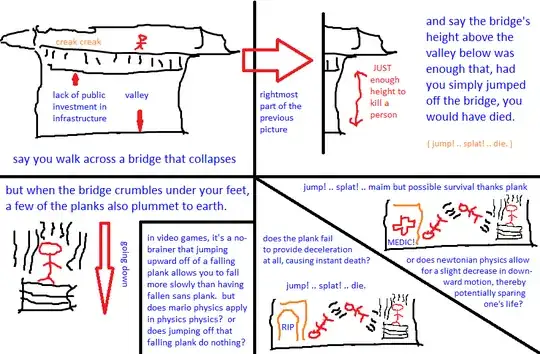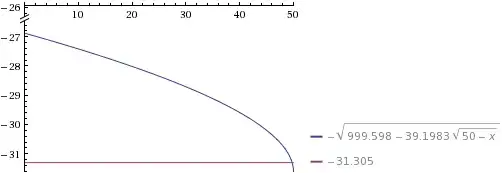This illustration summarizes my question:

Please assume no air resistance (unless that makes a large difference). Here's what we concluded, but I could use both confirmation and also help with the math:
Yes, jumping off of a plank will move you "up", but the timing of the jump makes a big difference. If you jump earlier in the fall, you'll move up, but you'll also add to the distance of the fall.. If you jump at the very end, you're essentially not adding to the fall at all, so you're getting essentially the maximum effect. In order to minimize the velocity at which you hit the ground, the best strategy would be to jump at the moment before impact.
To keep the math simple, let's say you can jump one meter off of solid ground, and also that the bridge is ten meters above the ground.
If you jump the instant the bridge crumbles, then you're actually doing yourself harm, since you will then fall from 11 meters. If you jump a less than a meter into the fall, you may get back up to the height of the bridge, get to "rest", but then still fall from 10 meters, as if you had done nothing.
The closer to the ground that you jump, the larger the share of your jumping velocity that will be subtracted from your downward velocity without later contributing to your downward acceleration.
